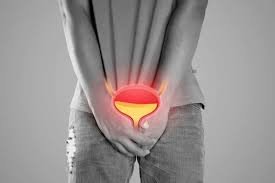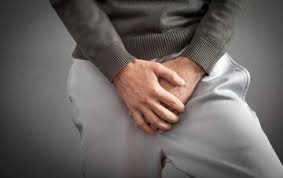The urinary system – also called the urinary tract.

What are the symptoms of urinary tract infections in men?
*fever;
*chills;
*malaise;
*pain or burning when urinating;
*small amount of urine;
*increased urinary frequency;
*discomfort and a feeling of heaviness in the lower abdomen;
urine with a strong odor;
The male urinary tract consists of the kidneys, ureters, bladder, and urethra. Diseases that affect the urinary tract can cause difficulty urinating.
What is the treatment for urinary tract infections?
Urinary tract infections are treated with antibiotics. Proper hydration helps flush bacteria out of the bladder. In cases of pyelonephritis (kidney infection), bed rest is recommended. If the underlying cause is a malformation of the urinary tract or bladder obstruction, additional therapy may be necessary.
Men can also develop urinary tract infections, although this problem is more common in women. The infection must be treated so that it does not develop into more serious conditions or cause problems for the prostate.
It is true that women are more likely to develop urinary tract infections because of the anatomy of their bodies. However, men can also be affected by this condition, which requires treatment to prevent major complications.
Urinary tract infections in men are somewhat different from those in women, including the causes of the problem. We have prepared this article to talk a little more about this topic so that you can stay up to date on the subject. Keep reading and see everything you need to know about male urinary tract infections.
The image shows a man clutching his belly in pain.

Do men also get urinary tract infections?
What causes urinary tract infections in men?
What are the symptoms of urinary tract infections in men?
How are urinary tract infections in men treated?
Do men also get urinary tract infections? Women are more susceptible to urinary tract infections because the urethra is close to the anus. Also because the urethra in women is shorter than in men, which makes it easier for microorganisms from the intestine to enter the urinary tract.
Men, because they have a longer urethra and due to the anatomy of their body, are less susceptible to urinary tract infections; but this does not mean that they do not get urinary tract infections. Urinary tract infections also occur in men.
As with women, the infection can occur in any structure of the urinary tract, so there are two types of urinary tract infections in men:
low urinary tract infections, which occur in the urethra and bladder;
upper urinary tract infections, which reach the ureters and kidneys.
The infection usually starts in the urethra and can then move to the bladder, ureters and reach the kidneys. Furthermore, these infections can also harm the prostate, since it is connected to the urethra.
Recurrent urinary infections in men can contribute to the onset of prostatitis, an inflammation that affects the prostate. At the same time, prostate problems can favor infections. We will discuss this below.
What causes urinary tract infections in men?
There are three main causes of urinary tract infections in men. One of them is the presence of bacteria in the urinary tract. The main causes of this condition are Escherichia coli, Klebsiella sp. and Proteus sp.
These bacteria come from the intestine. They can reach the male urinary tract due to the use of diapers or due to anal intercourse without a condom, for example. They can also be microorganisms that cause sexually transmitted diseases.
In addition, urinary tract infections in men can be caused by benign enlargement of the prostate, i.e. prostatic hyperplasia. When this gland increases in size, it presses on the urethra and makes it difficult to empty the bladder completely, favoring the proliferation of bacteria.
Prostatitis is another cause of male urinary tract infections. In this case, when there is an infection in the prostate from bacteria in the intestine, this infection spreads to the bladder through the migration of microorganisms through the bloodstream.
There are also some risk factors that favor the occurrence of urinary tract infections in men. They are:

retaining urine for a long time;
drinking little liquid;
having kidney stones;
incomplete emptying of the bladder;
being diabetic;
using a catheter to urinate;
having tumors;
not being circumcised.

Product suitable for vegans.

